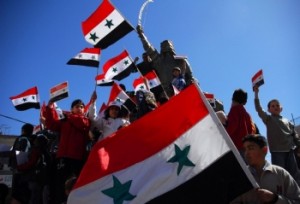 Russia’s deputy foreign minister has called on the international community to give Tehran a chance to participate in ending the crisis in Syria.
Russia’s deputy foreign minister has called on the international community to give Tehran a chance to participate in ending the crisis in Syria.
Moscow is confident that the Islamic Republic of Iran “can and must play a positive role” in finding a political way to reverse the conflict in Syria, Gennady Gatilov told reporters on Thursday.
"We think it unacceptable to ignore Tehran's potential,” he emphasized. “We spoke about [Iran’s participation] before the first meeting in Geneva.”
Since March 15, 2011, Syria has been involved in a civil war between forces loyal to President Bashar Assad and a militant political opposition. Russia has been advocating a diplomatic solution to the bloodshed in an effort to avoid another “Libyan scenario,” referring to the West’s military intervention in Libya, which Russia harshly criticized.
Despite a crippling economic sanctions regime against Iran over its failure to cooperate with UN nuclear inspectors, Moscow is convinced that Tehran, given its strong relationship with the Assad regime, may hold the key for a solution to the Syrian crisis.
Tens of thousands of civilians have been killed in Syria since the beginning of the violence nearly two years ago.
To date, international mediators have been unable to get the warring sides to honor a ceasefire and enter into negotiations.
Russia is convinced Iran could play a constructive role in breaking the stalemate.
"We should involve the Iranians rather than isolate them; they are an important element in the architecture of regional security," Gatilov noted. "Moreover, we have a strong impression that Iran is ready to make a constructive contribution to resolving the crisis.”
Syria, which is often referred to as Iran’s closest ally, sided with Tehran in the eight-year Iran-Iraq War (1980-1988), and the two countries have remained partners ever since.
It remains to be seen, however, how the international community will respond to any cooperation in Syria by Iran, which continues to attract suspicion over its alleged nuclear weapons program.
Tehran rejects the accusations, saying it is developing its nuclear potential in order to provide energy needs for its civilian sector.
By Russia Today
The Iran Project is not responsible for the content of quoted articles.

 QR code
QR code